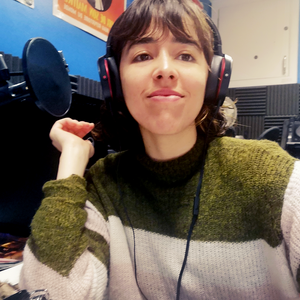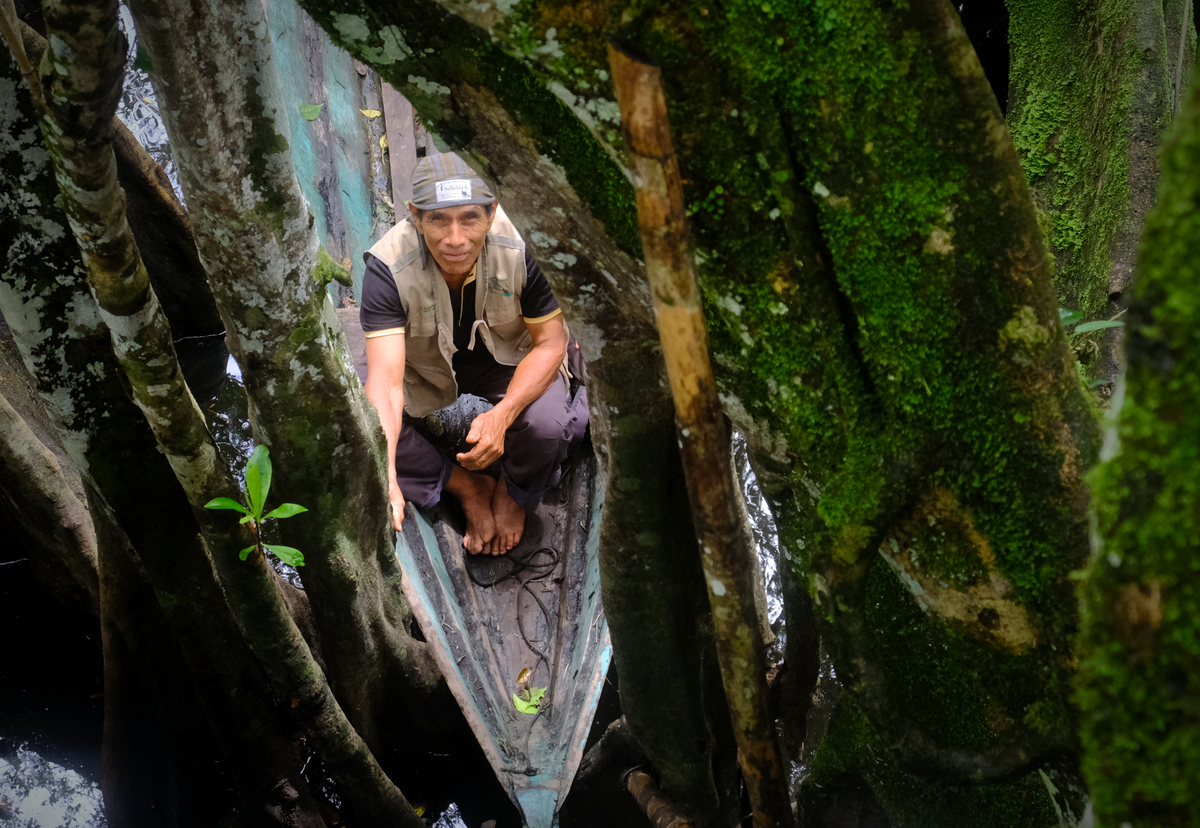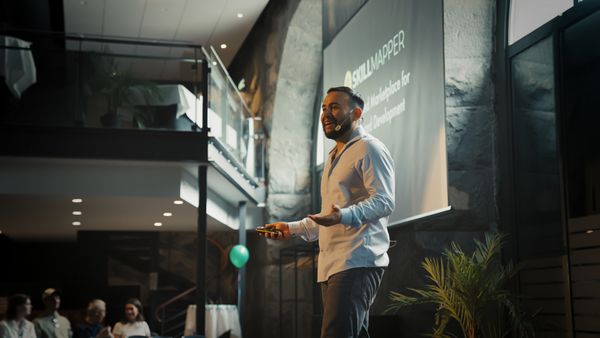San Martín, Perú
Juan Isuiza wasn't always an environmentalist. Far from it, if we're being honest. "If someone back then had told me what 66-year-old Juan would be up to in the future, I wouldn't have believed them." Juan bursts out laughing at what must seem like a distant, almost unimaginable past. "We killed anything that moved. If it could walk, swim or fly, we'd kill it. And then we would eat it," he says.
Yet, despite this unlikely start, for the past two decades, Juan has been the driving force behind one of the most successful community-run environmental projects in the Peruvian Amazon: Tingana, an eco-lodge and organic agro-export business.
His path to environmental entrepreneur, however, was unlikely. Nothing in his past or his surroundings foreshadowed what he would find to be his life calling.
Embracing environmentalism and eco-tourism
A tiny village of no more than 40 inhabitants, Tingana is located deep in the jungle of the Amazon region of San Martín, Peru. It's only reachable by boat, hours away from the nearest town. The area is home to one of the most unique and vulnerable ecosystems in the Amazon: high-altitude floodplain forests, which become flooded when rivers swell during the rainy season.
Though floodplain forests have always been biodiversity hotspots, twenty years ago, Juan started to notice things changing. Fish were smaller and wild orchids became harder to come across when canoeing through the swamps. More importantly, the area's clearing of ancestral forests to grow rice had turned the periodic floods into an unpredictable and destructive force.
Tingana is located in a remote part of the rainforest, and all Juan had ever seen was people hunting and clearing land for monoculture farming. "I was already beginning to understand that the way I did things was not sustainable," Juan says. "But at that time, I had no idea what an environmental project was. I had never heard of such a thing. Everyone loves to talk about the environment now, but back then, this meant nothing to me."
As luck would have it, however, a relative working in the city had met a representative from a European cooperation agency and managed to get the two in touch. Juan realized there was a market for eco-initiatives in the Amazon: people who wanted to visit unique and pristine ecosystems, such as those surrounding Tingana, and were willing to pay higher prices for sustainable products. He decided to set up a meeting with the rest of the community. "Thank god I know how to read and write a little, so I wrote the day and time of the meeting on small pieces of paper and handed them out to everyone," he told me. I asked him how that first meeting went. "It was so boring!" he confessed, laughing loudly. "I had to pinch myself through his presentation just to stay awake."
An initial seed fund by the international cooperation agency allowed them to come up with some basic tourist infrastructure: they built a small dock for visitor boats and bought rubber boots so they could go on hikes. They did so without knowing whether anyone would actually come.
Navigating threats and uncertainty
The path to their current success was anything but straightforward. The project was initially seen as a threat by neighboring farmers, as well as by land traffickers. During the dry season, unscrupulous individuals often try to sell land to unsuspecting farmers, unaware of the periodic floods. Juan tells me he's been shot twice by criminal groups in the area. "But that was in the past," he says. "After decades of solid work, you eventually gain the respect of people, even if they don't understand you."
Less dramatically, however, he confesses the entire process was uphill. No one in the village knew anything about hospitality, nor had they ever visited similar lodges. Juan says it was like walking in the dark; the uncertainty and missteps also brought tension among the community members. He quickly discovered running a successful enterprise was as much about figuring out a successful business model as it was about managing everyone's trust and expectations.
A thriving business
Twenty years later, however, it's clear their leap of faith has paid off. Today, Tingana receives visitors almost daily, who arrive from all over the country and the world to visit a project that has been twenty years in the making, one that integrates the communal model of ownership that's still present in much of Peru's rural areas with global market dynamics. Decisions are taken communally, and profits from the initiative are reinvested in the project and distributed amongst all the families.
Tingana has grown from that initial makeshift docking area into a full-on eco-lodge. There are huts for overnight visitors, dry toilets to minimize the environmental impact, an open dining room area, and canoeing routes for guests of all ages and interests. When I visited, they were building tree houses for an upcoming glamping experience. The village and eco-lodge are also almost entirely self-sustainable: almost everything eaten there is also organically grown there.
Though most people are familiar with the Madagascar species, there is a type of vanilla native to the Amazon. In Tingana, this mostly unknown variant is thriving— and helping the community succeed. They have begun exporting it to customers in Germany and the Netherlands, selling a single vanilla pod for next to three dollars. Land-intensive, pesticide-dependent crops such as rice currently sell for 30 cents per kilo. The farm itself is now an increasingly profitable part of the enterprise, and might soon become the core business at Tingana.
When I ask Juan what's next, he says that now that the business is thriving, he's eager to show other communities that there is money to be made in sustainability. He is adamant when explaining that his drive to found Tingana was, first and foremost, a financial decision. Tingana was a poor community, and he realized thoughtless extraction would eventually turn his land barren. What they were doing was not just environmentally but economically unsustainable.
After twenty years of hard work, the community is experiencing prosperity that would have been previously unimaginable, all while preserving the floodplains around them. The new generation coming of age in Tingana will be able to attend university: Juan's nephew is leaving soon to study for a PhD in sustainable agriculture in the Netherlands.
"People in nearby villages must think we're crazy. So much land to clear, so much land to grow rice on… and yet, we still keep the forest", he tells me, resting in a hammock while looking at the river. "What they don't know is that an animal is worth so much more alive in its natural ecosystem than dead. And trees are worth much more standing than down."


